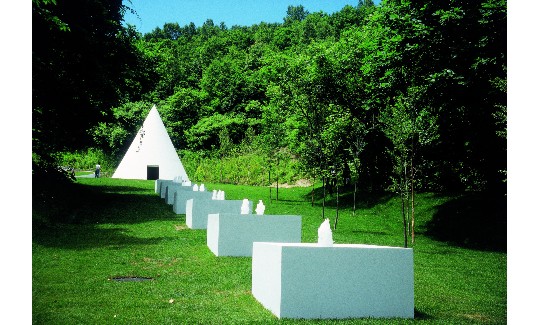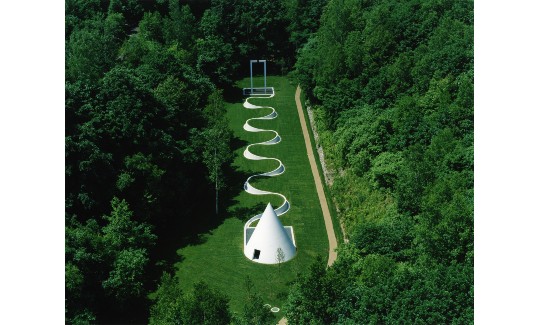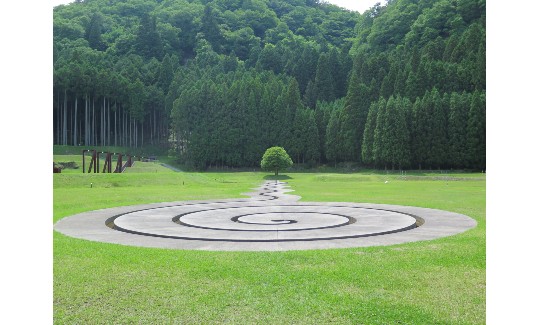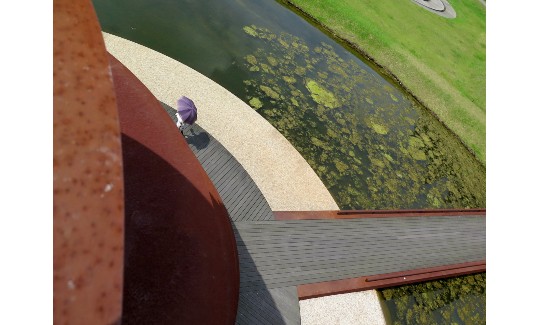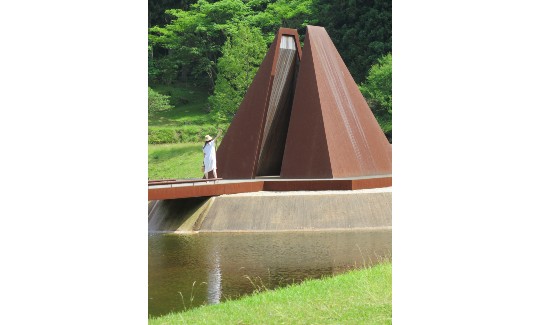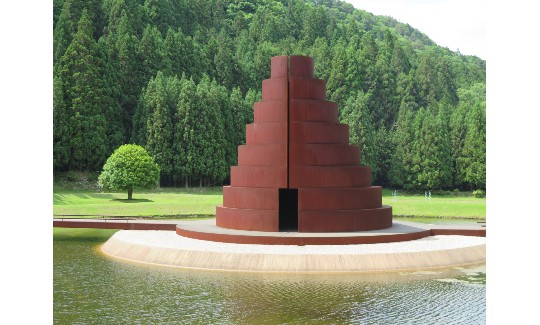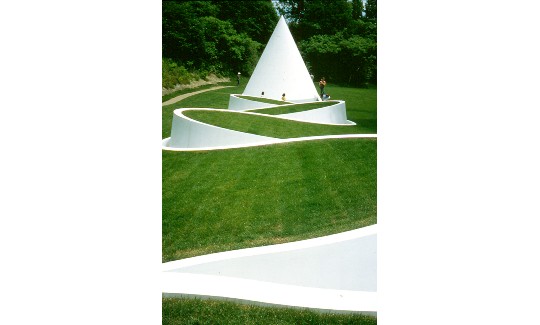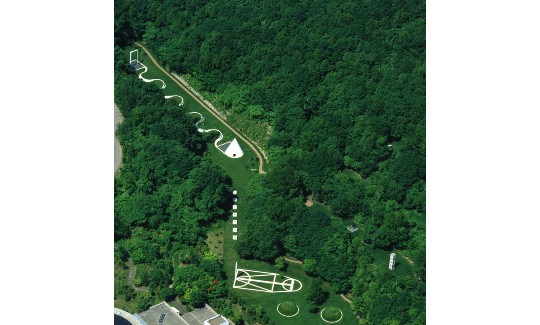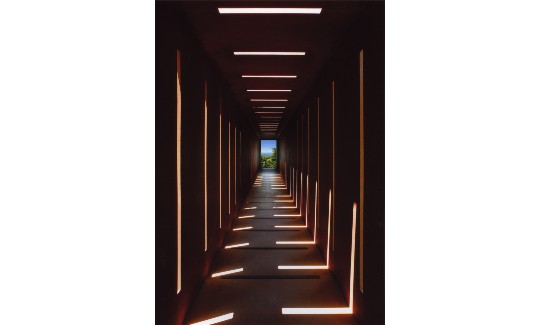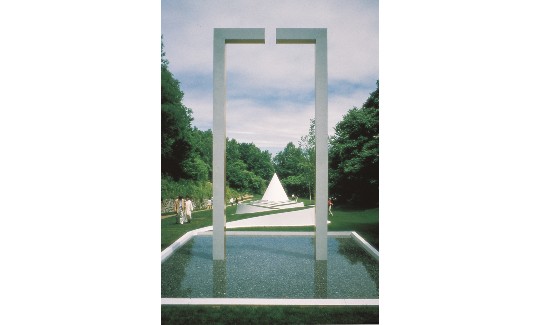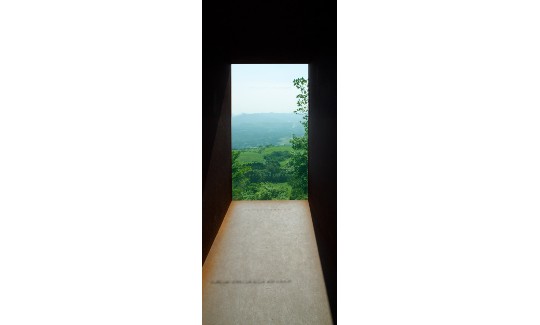The Japan of Dani Karavan
Current Exhibition
Saturday, 13.11.21, 10:00
Saturday, 30.07.22
curator:
Dr. Etty Glass Gissis
More info:
04-6030800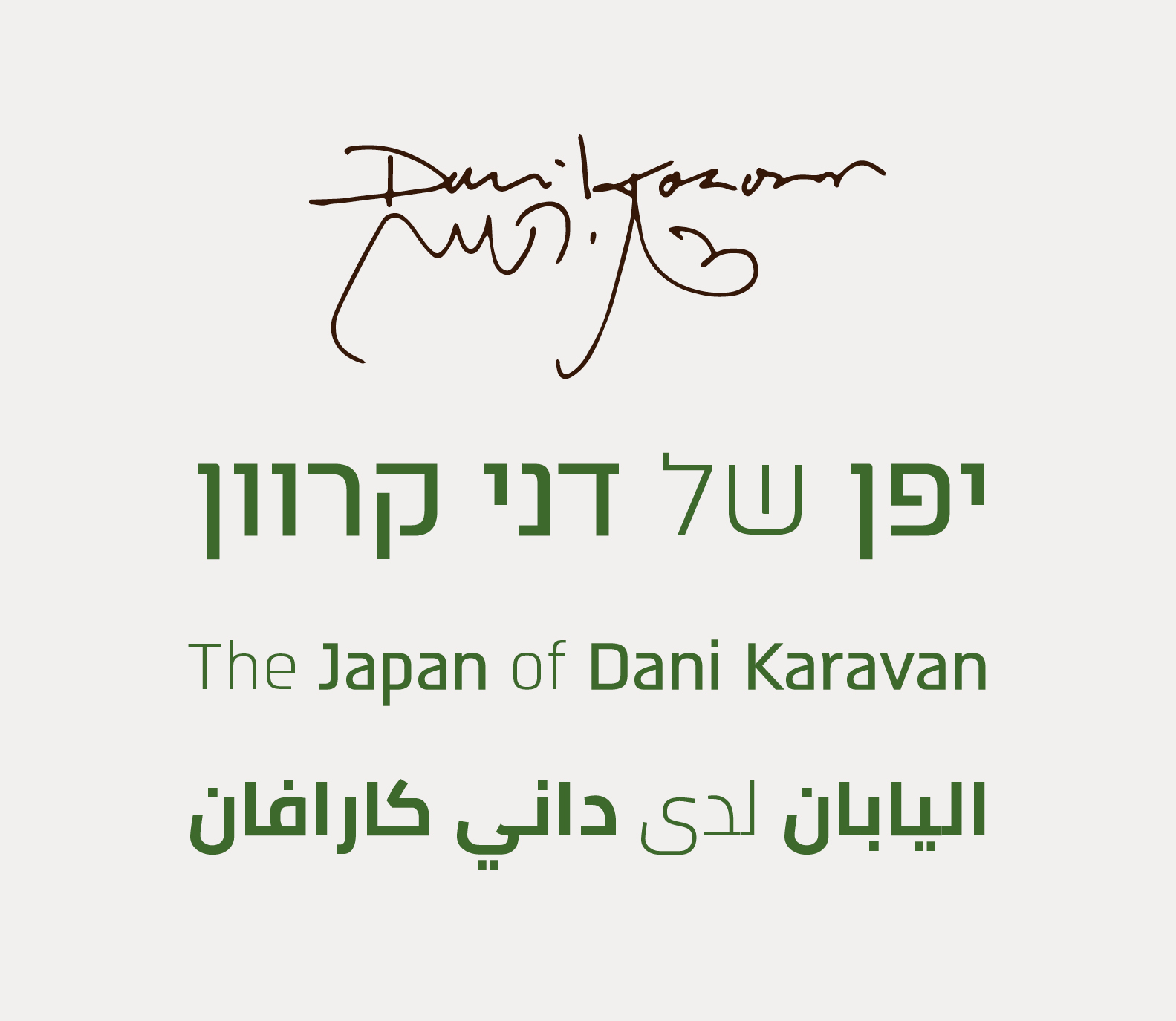
The Japan of Dani Karavan
Dani Karavan |1930-2021| translated his artistic language without losing his roots and created a dialogue between his works and the Japanese place and experience. Three central works, in terms of their scope and level of conservation, are located along the length of Japan, on three different islands: On the northern island of Hokkaido, the "The Way to the Hidden Garden" is located in a sculpture forest on the outskirts of Sapporo; on the main island of Honshu, in Nara Prefecture, is the Murou Art Forest; and on the southern island of Kyushu, where the work "Bereshit" stands. This exhibition focuses on these three works.
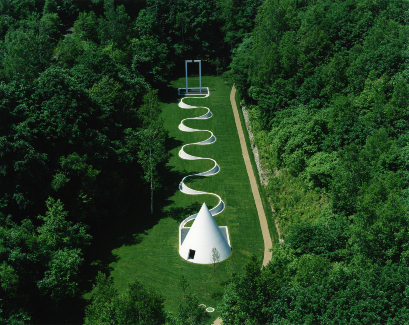
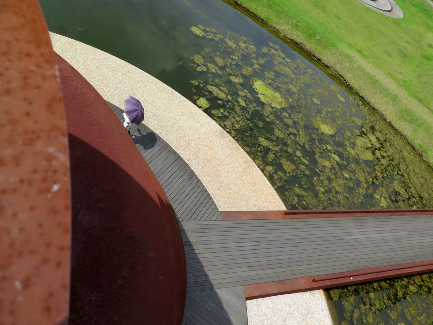
Dani Karavan‘s environmental art includes the elements of experience, reaction, and the connection between it and the visitor. The visitor is not an external factor, a stranger, but must move within the work to experience it, and the work is not complete without the visitor. Already at first glance, the works invite the visitor to discover them from within. The three works are "site-specific", and any attempt to move them elsewhere will remove them from their unique context to the local history and geography. In the three works there is a discourse between the parts of the work, near or far, and they are a complete work only taken together as a whole.
The main elements of the three works are space, the sun, the shadow, the path, the gate, narrowness, combinations of materials and textures, nature and the environment and their interactions with the works. These elements, which are repeated time and again in Karavan’s works, are also essential in the Japanese culture.
Using the works he created in Japan, Karavan claimed to legitimize the Japanese culture. On the other hand, the artistic language common to both paved a two-way path and thus Japanese culture gives legitimacy to the works of Dani Karavan.
In 1998 the Imperial Family awarded Dani Karavan the Praemium Imperiale global arts prize in a special ceremony held in Japan.
"In 1988, I arrived with my wife Eve for the first time in Japan. It was as if I was looking in the mirror and looking inside at myself."

